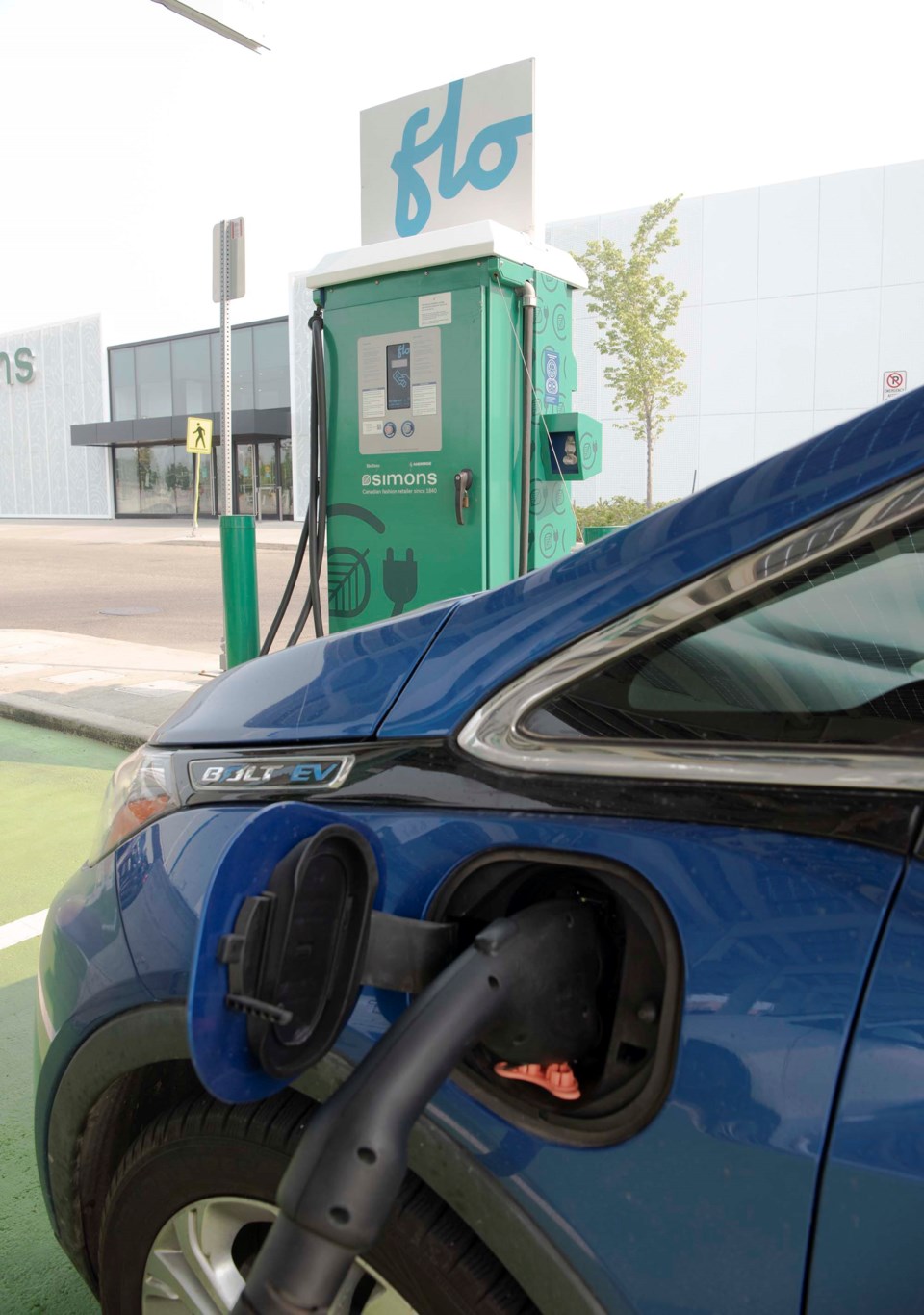Electric car owners around St. Albert and Sturgeon County can get free cash this month if they sign up for a study of how their cars affect the power grid.
FortisAlberta launched the Electric Vehicle Smart Charging Pilot on Jan. 16. This one-year study — the first of its kind in rural Alberta — offers electric vehicle (EV) owners in its service area (which includes the St. Albert/Sturgeon County region) $150 if they agree to use an app to track and control when their cars draw power from the grid.
The grid challenge
EV ownership has surged nearly 900 per cent in Alberta since 2018, with some 5,600 of the vehicles on the road as of March 2022, Alberta Transportation reports. The Alberta Electric System Operator predicts some 1.5 million EVs will be on Alberta roads by 2035.
Blake Shaffer, a University of Calgary economist affiliated with the pilot, said the study aims to determine how Albertans charge their EVs and how that charging affects the provincial power grid.
“If we replaced every single gas car (in Alberta) with an electric car, we’d be increasing our total electricity demand by 20 per cent,” Shaffer said, assuming 4,000 kilowatt-hours a year per car and four million cars.
If everyone goes home after work and plugs in their car at the same time, it will create a huge spike in our peak energy demand, which typically happens at about 6 p.m., Shaffer said. More peak demand means higher costs, as Albertans will have to pay to build power lines and transformers to meet that demand. If we instead spread out that demand by charging during off-peak hours, we can reduce our need for additional power infrastructure and lower our power bills.
FortisAlberta spokesperson Tanya Croft said this pilot study asks participating drivers to use the Optiwatt app to track when and where they charge their cars. Later this year, the app will sometimes delay when cars start charging once plugged in, aiming to avoid peak demand hours while still meeting the driver’s specified charge level. (Drivers will be able to override these delays.)
Shaffer said he and his team would also test various incentives to see if they can convince drivers in the pilot to charge their cars during off-peak hours.
Croft said anyone who owns a battery electric vehicle, lives in the FortisAlberta service region, and has a charging station at home can join the pilot by downloading the Optiwatt app and checking the appropriate toggle under the “Charging” tab. Participants get $50, plus another $100 if they stay in the study until Dec. 31.
Croft said FortisAlberta hopes to recruit about 600 EV owners for the study. They had about 100 as of early February.
Parkland County electrical contractor Kevin Payne said he enrolled in this study because of his interest in Alberta’s power grid.
“Fortis needs to gather all the data they can,” he said, as Alberta’s power grid was not designed to handle EVs.
Shaffer said electric vehicles were at a major fork in the road in terms of how they could affect the power grid. Done right, and they could act like mobile batteries able to store excess power. Done wrong, and they could impose major costs on consumers.
Payne encouraged eligible EV owners to sign up for the study.
“We want this infrastructure to be solid,” he said.
“The more data you can give them, the better it is for all of us.”
See fortisalberta.com/electric-vehicles-and-electric-vehicle-chargers/2023-electric-vehicle-smart-charging-pilot for details on the study.



